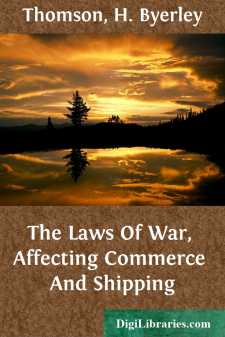Categories
- Antiques & Collectibles 13
- Architecture 36
- Art 48
- Bibles 22
- Biography & Autobiography 815
- Body, Mind & Spirit 144
- Business & Economics 28
- Children's Books 18
- Children's Fiction 14
- Computers 4
- Cooking 94
- Crafts & Hobbies 4
- Drama 346
- Education 58
- Family & Relationships 59
- Fiction 11835
- Games 19
- Gardening 17
- Health & Fitness 34
- History 1378
- House & Home 1
- Humor 147
- Juvenile Fiction 1873
- Juvenile Nonfiction 202
- Language Arts & Disciplines 89
- Law 16
- Literary Collections 686
- Literary Criticism 179
- Mathematics 13
- Medical 41
- Music 40
- Nature 180
- Non-Classifiable 1768
- Performing Arts 7
- Periodicals 1453
- Philosophy 65
- Photography 2
- Poetry 896
- Political Science 203
- Psychology 44
- Reference 154
- Religion 515
- Science 126
- Self-Help 85
- Social Science 83
- Sports & Recreation 34
- Study Aids 3
- Technology & Engineering 59
- Transportation 23
- Travel 463
- True Crime 29
Our website is made possible by displaying online advertisements to our visitors.
Please consider supporting us by disabling your ad blocker.
The Laws Of War, Affecting Commerce And Shipping
Description:
Excerpt
INTRODUCTION TO PART I.
It would be superfluous to trouble my readers, in a concise practical treatise, with any theoretical discussion on the origin of the Law of Nations, had not questions of late been often asked, respecting the means of accommodating rules decided nearly half-a-century ago, to those larger views of international duty and universal humanity, that have been the natural result of a long Peace, and general progress.
To commence with the question, Who is the international legislator? it must be observed, that there is no general body that can legislate on this subject; no parliament of nations that can discuss and alter the law already defined. The Maritime Tribunals of maritime states always have been, and still are, almost the sole interpreters and mouthpieces of the International Law. Attempts that have been made by our own parliaments, by individual sovereigns, and even by congressional assemblies of the ministers of European powers, to create new universal laws, have been declared by these courts to be invalid, and of no authority. And though it is distinctly laid down, that the Law of Nations forms a part of the Common Law of England, yet it is not subject to change by Act of Parliament, as other portions of the Common Law are; except so far as Parliament can change the form, constitution, and persons of the courts that declare the law.
Lord Stowell says
"No British Act of Parliament, nor any commission founded upon it, can affect the rights or interests of foreigners, unless they are founded upon principles, and impose regulations, that are consistent with the Law of Nations."
And in another place—
"Much stress has been laid upon the solemn declaration of the eminent persons (the ministers of the European powers), assembled in Congress (at Vienna). Great as the reverence due to such authorities may be, they cannot, I think, be admitted to have the force of over-ruling the established course of the general Law of Nations."
It is to the Maritime Courts, then, of this and other countries, that the hopes of civilization must look for improvement and advance in the canons of international intercourse during the unhappy time of war. The manner, and the feeling in which they are to pronounce those canons cannot be more finely enunciated than in the words of Lord Stowell himself.
"I consider myself as stationed here, not to deliver occasional and shifting opinions to serve present purposes of particular national interest, but to administer with indifference that justice which the Law of Nations holds out, without distinction, to independent states, some happening to be neutral, and some belligerent.
"The seat of judicial authority is indeed locally here in the belligerent country, according to the known law and practice of nations; but the law itself has no locality. It is the duty of the person who sits here to determine this question exactly as he would determine the same question, if sitting at Stockholm; to assert no pretensions on the part of Great Britain, which he would not allow to Sweden in the same circumstances; and to impose no duties on Sweden, as a neutral country, which he would not admit to belong to Great Britain, in the same character....







